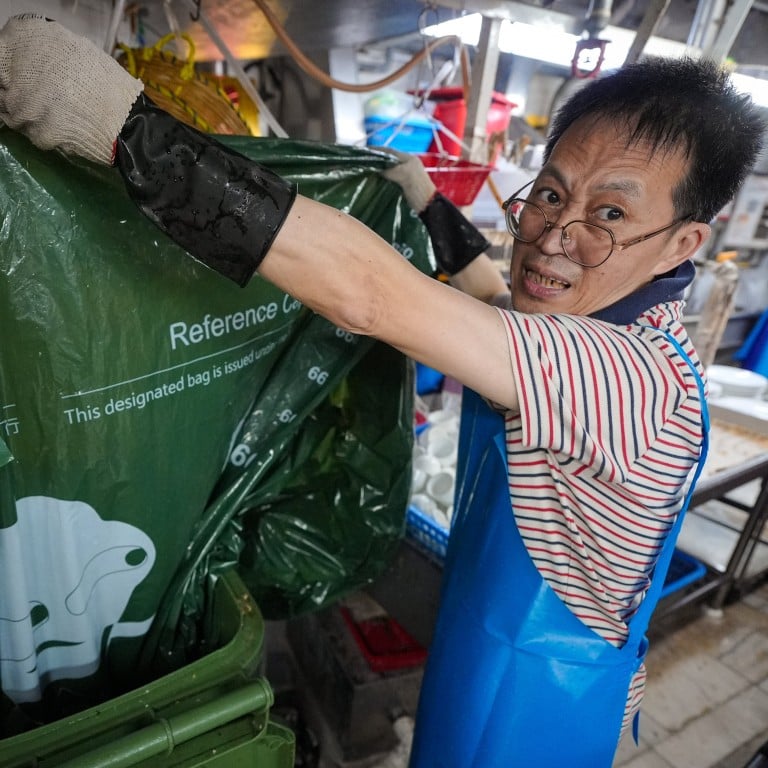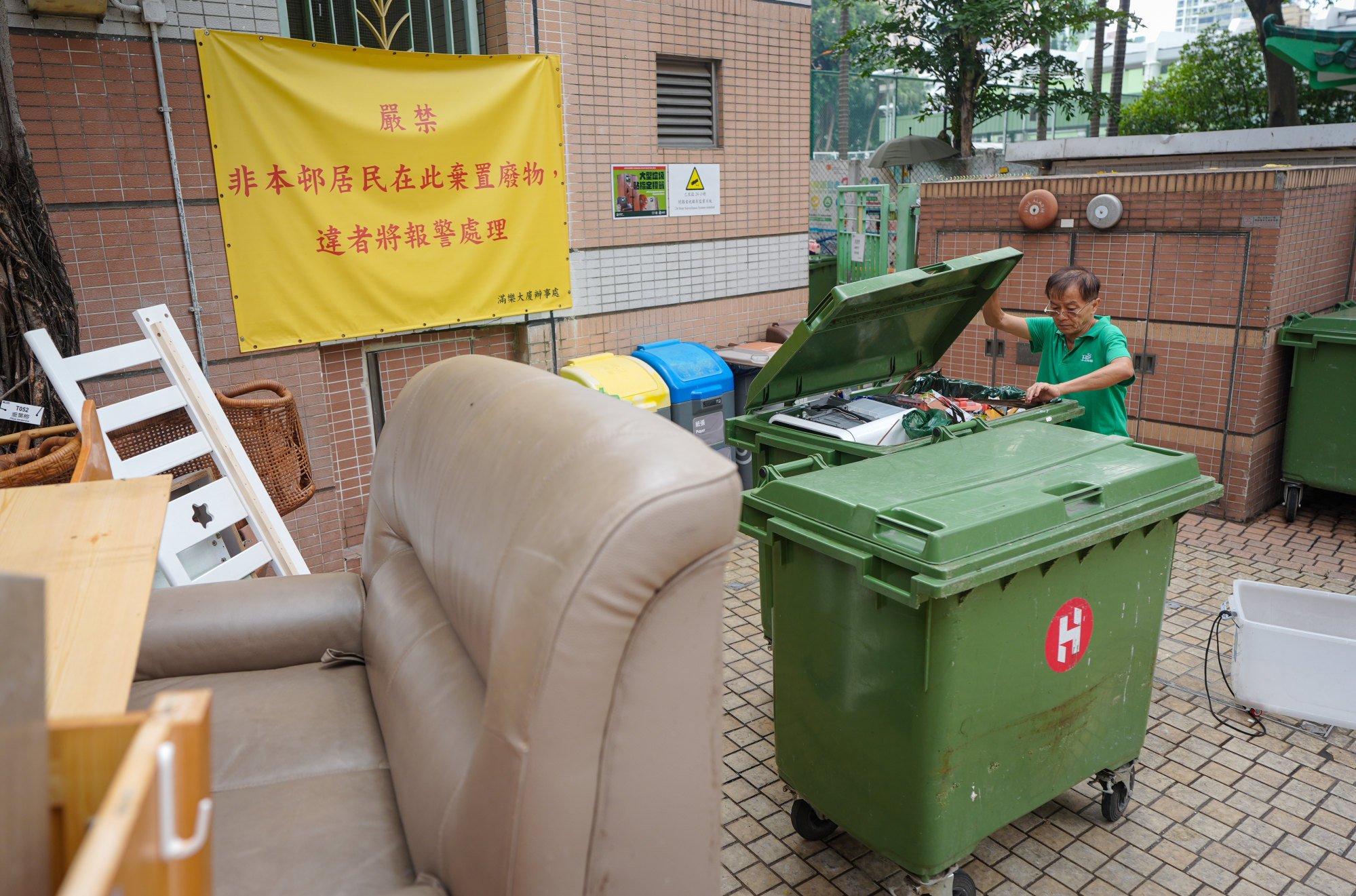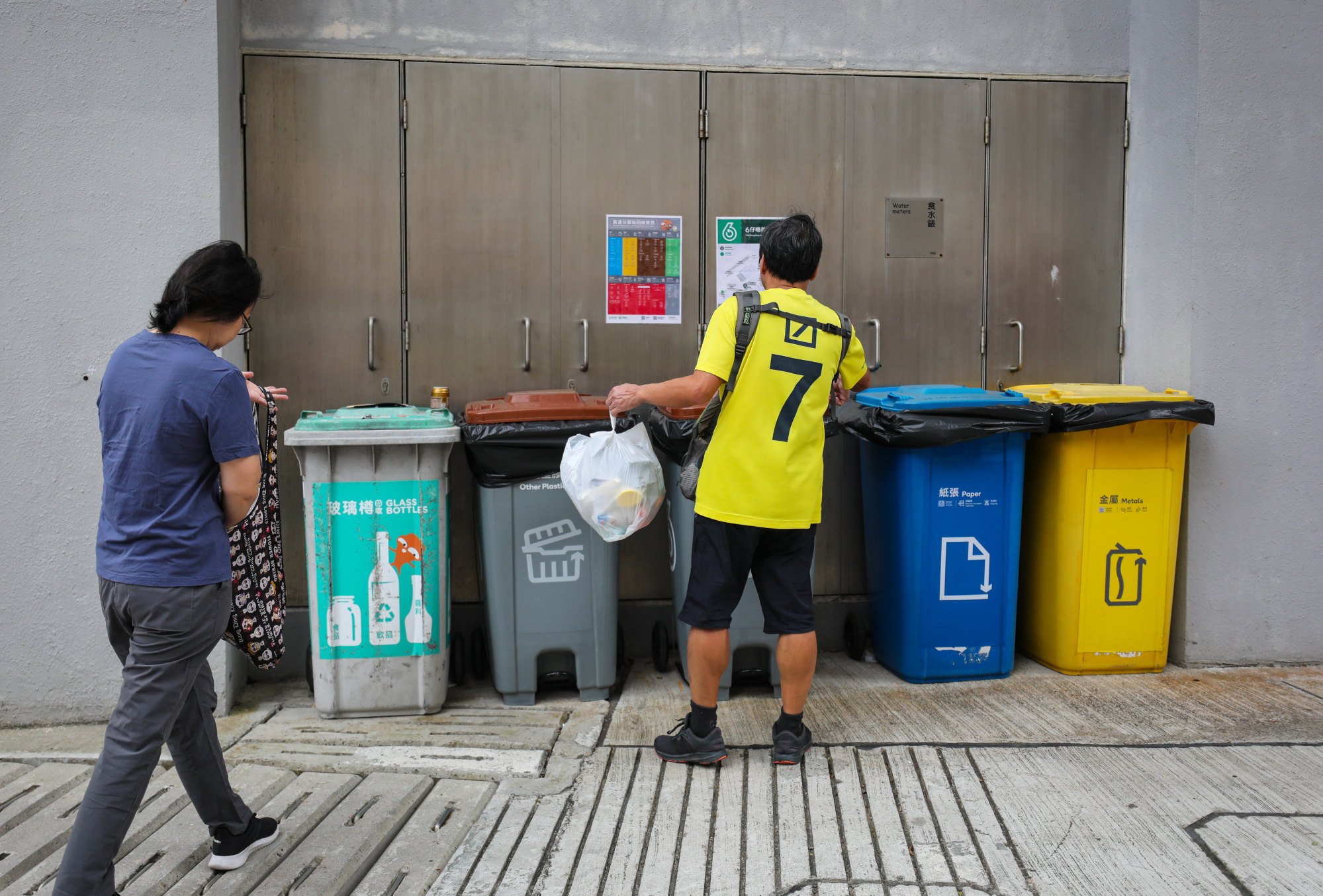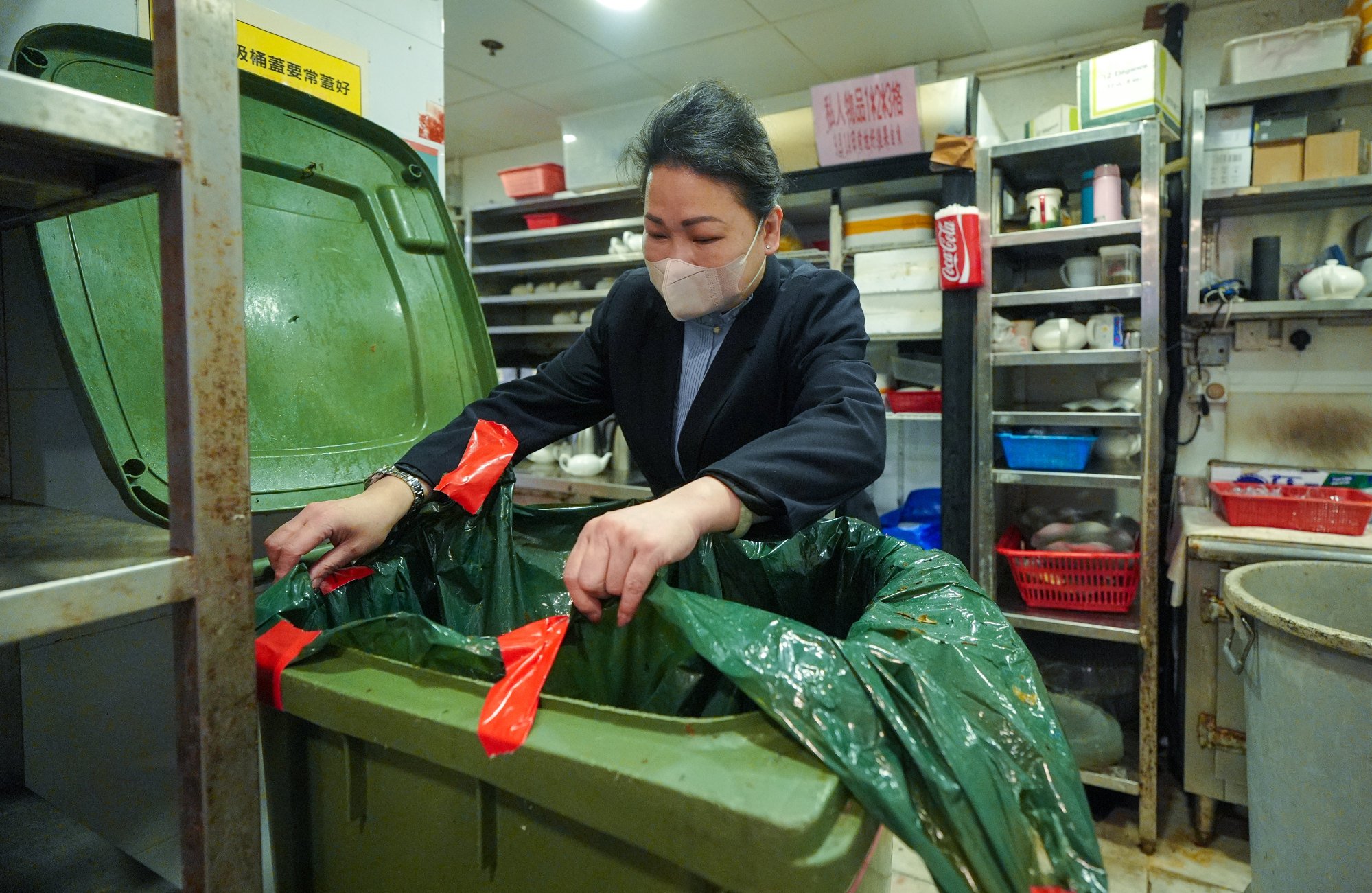
Hongkongers in trial run of waste-charging scheme criticise one-size-fits-all approach to special bags at estates
- Public housing tenants taking part in limited roll-out of municipal solid waste-charging scheme given 30 of government’s 15-litre rubbish bags per household
- Some larger households say bags are too small, while others criticise lack of explanation about how to dispose of larger items
Residents were left confused, sceptical and frustrated on Monday as Hong Kong launched a trial run of a waste-charging scheme, an ambitious effort more than two decades in the making intended to revolutionise how the city disposes of rubbish as landfills run out of space.
After pushing back the scheme from December to August at the instruction of city leader John Lee Ka-chiu, the government has turned its focus on the trial run to identify weak spots in how residents will deal with waste charging.
Fourteen locations are involved in the soft launch, including one government building, two public housing estates, three private residential complexes, two care homes and two shopping centres.
But environmental advocates have said the low stakes hampering the trial run, where residents face no consequences if they fail to comply, will leave the government with not enough useful information about the scheme going forward.

The Environmental Protection Department said authorities would record data, including the garbage collection process and operational arrangements, to understand problems that might occur as the pay-as-you-throw scheme came into force.
“The report on the pilot scheme, including the relevant data and opinions collected, will be presented to the Legislative Council between May and June 2024,” a spokesman said, adding the department had helped to address issues raised by residents and merchants, including unsuitable bag sizes.
Residents must throw out their trash in government-approved bags that vary in price according to size. Under the scheme, which will come into effect across the city on August 1, residents must place their garbage in bags available in nine sizes at a cost of 30 HK cents (4 US cents) to HK$11. An HK$11 special label will also be available for large or oddly shaped items.
Hong Kong authorities ‘pragmatic’ about waste levy launch ahead of trial run
Residents involved in the soft launch were given 30 of the government’s 15-litre (four gallon) rubbish bags on Sunday.
Secretary for Environment and Ecology Tse Chin-wan and Director of Environmental Protection Samuel Chui Ho-kwong visited three sites on Monday afternoon to inspect the garbage collection and food waste recycling process.
Vicky Ng, a 60-year-old homemaker taking out empty bottles for recycling at On Ning Lau, a public housing block in Tsuen Wan’s Moon Lok Dai Ha that is one of two taking part in the trial run, said the bags she was given were far too small for her family’s needs.
“They don’t fit in my rubbish bin,” she said. “I now spend about HK$30 [US$4] for 100 bags, but later I will need to pay HK$220 for 100 bags with the same capacity. That’s too expensive.”
Another resident surnamed Ho, who lives alone, said the 15-litre bags were too large for her and she hoped more options would be made available to prevent waste.
“They asked us to use those green bags and leave them outside the flat, but they did not say much about sorting our trash and recycling,” the 70-year-old said. “I recycle a lot, but some elderly who are not quite mobile may find it challenging to reduce their waste.”
Chan, a 70-year-old tenant living with her husband, said the bags were the right size for her family, but she felt the scheme was not environmentally friendly.
“I am used to reusing the plastic bags I get from the wet market for my trash. I never buy rubbish bags,” she said, adding she gave her clean spare ones to grocery stores.
“Now what should I do with them? I can’t use them the way I wanted, but it’s wasteful to throw them away.”
Hong Kong to launch trial run of waste charging; participants unclear about rules
Chris Yeung Chin-pang, assistant director of property management at the Hong Kong Housing Society, which is overseeing the trial run at On Ning Lau, said the refuse collection process had so far been smooth.
“Some residents did not use the designated bags, but that is expected … we will keep track of the record and follow up with them. A booth was also set up in the lobby for them to ask questions.”
Yeung said they would also tell the government they needed more recycling bins and convey concerns about being punished for breaching the rules.
A resident of Lin Tsui Estate in Chai Wan, a 65-year-old retiree surnamed Cheung, said he was left confused about the launch.
“No staff came down to explain or teach us how to throw away items that are bigger than the bags, such as broomsticks or mops.”

Fellow resident Tommy Lai, 49, said the 30 bags he received were enough since he lived alone and only threw out his rubbish every two or three days, but the scheme still did not make sense.
“Since I have my own rubbish bags to get rid of, I will put my garbage in those plastic bags before putting them in the green plastic bags,” he said. “That’s not very environmentally friendly.”
At a “three-nil” building in Sham Shui Po, so named because they do not have property maintenance companies, owners’ corporations or residents’ organisations, some regular trash bags had been swapped out for green designated ones at the rubbish collection point, but still some residents did not participate in the scheme.
A staff member from a Vietnamese migrant association located on Cheung Sha Wan Road said that while government officers had visited them and briefed them about the trial, they were not given any bags ahead of the pilot scheme.
‘Too early’ to judge whether to change Hong Kong’s waste-charging plan: John Lee
The association was still using regular plastic bags to hold their rubbish when the Post visited on Monday.
“We don’t have to take part in the scheme. We generate very little rubbish and we usually just bring it down and throw it in bins on the streets,” one staff member said.
Hsin Kuang Banquet Hall, one of four restaurants taking part in the pilot scheme, sent away three bags of trash – two 660-litre bags, and one 240-litre bag – to the cleaning company in the afternoon.
They were given 40 bags of 240-litre capacity and 20 bags of 660 litres, which were expected to last for two weeks.

Inside the San Po Kong restaurant’s kitchen, recyclables, including glass bottles and cardboard boxes, were separated from other trash – a new practice in response to the trial run.
In Tuen Mun, 180-bed retirement facility Kato Home received 75-litre bags.
Godfrey Ngai Shi-shing, chief executive of Kato (Hong Kong) Holdings, said the largest waste sources were nappies and wound dressings, which could not be further reduced.
He said he expected the cost of garbage disposal to rise significantly in the future, as the designated bags given were too small.
Green groups were doubtful about the effectiveness of the trial launch. Edwin Lau Che-feng, chief executive of NGO The Green Earth, said the voluntary nature of the soft launch would make its effect questionable.
“It’s a self-defeating policy,” he said. “Residents can choose not to use designated bags, which are also free of charge and in unlimited supply.”
Greenpeace campaigner Leanne Tam Wing-lam called on the government to explain how the trial’s effectiveness would be measured.
“[We need to know what] we should expect from this trial before we can decide whether we can roll out waste charging or more measures have to be taken,” she said.



